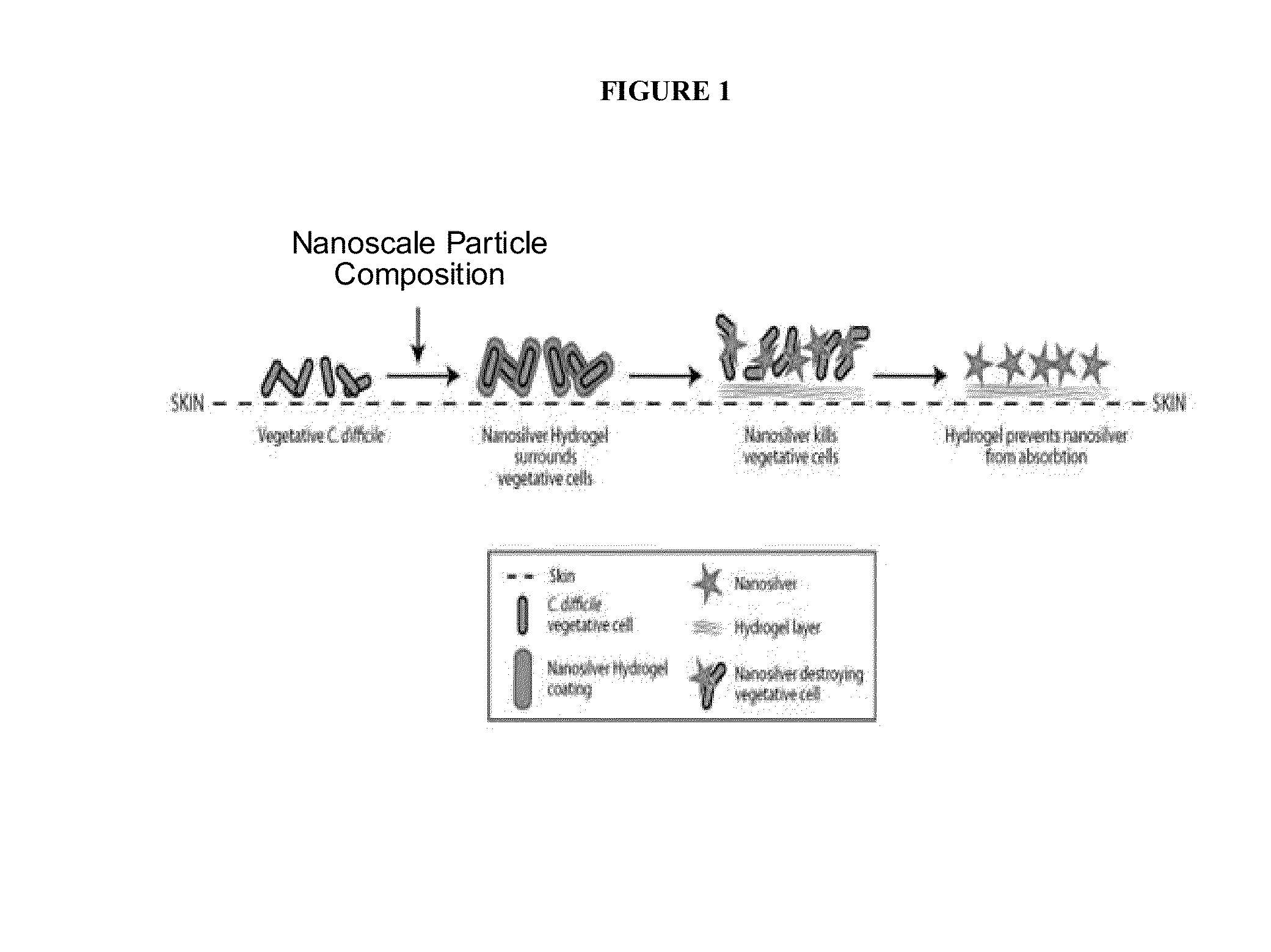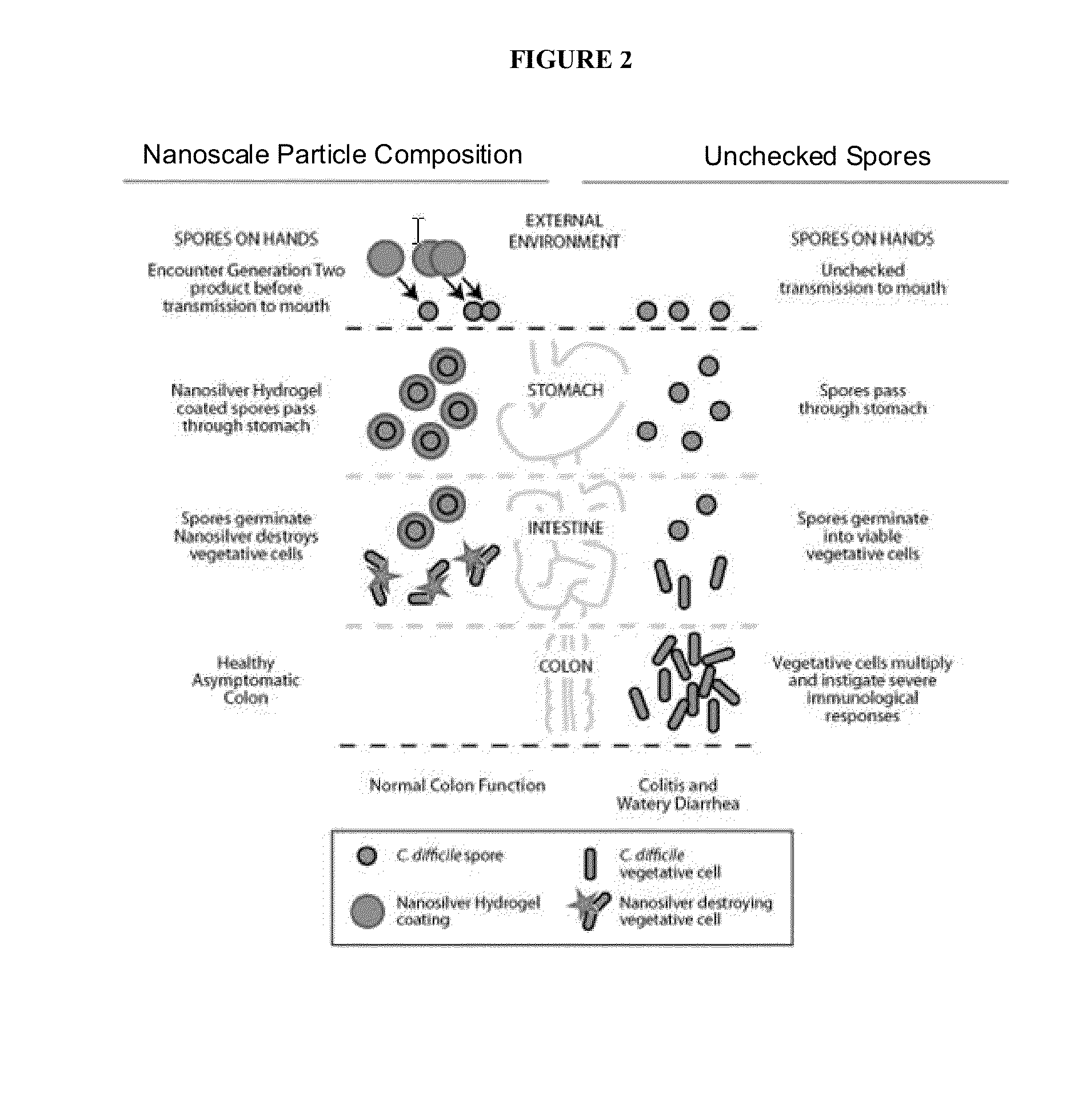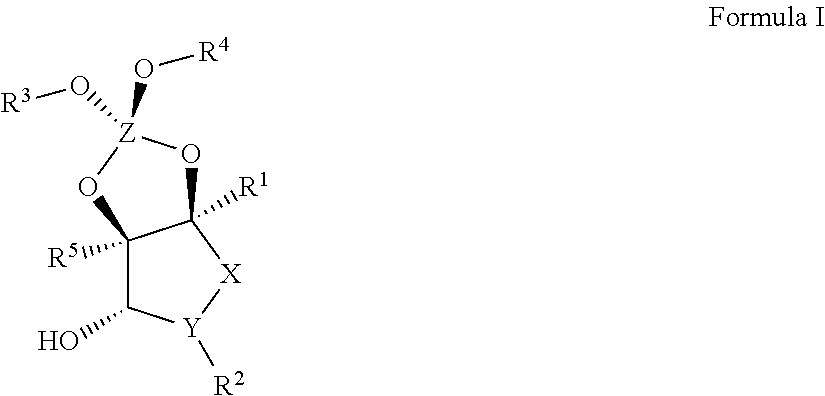Endospore compositions and uses thereof
a technology of compositions and endospores, applied in the field of endospore compositions, to achieve the effect of reducing the pathogenic population
- Summary
- Abstract
- Description
- Claims
- Application Information
AI Technical Summary
Benefits of technology
Problems solved by technology
Method used
Image
Examples
example 1
Spore Preparation for C. Difficile
[0796]C. difficile cultures (10 ml) are prepared by overnight growth at 37° C. in TGY-vegetative medium (3% tryptic soy broth, 2% glucose, 1% yeast extract, 0.1% 1-cysteine). Sporulating cultures were prepared by inoculating 0.6 ml TGY starter culture into 10 ml of each medium, followed by incubation for 24 h at 37° C. C. difficile spores were routinely prepared using DS medium.
[0797]For spore purification, spore suspensions are prepared in 600 ml DS medium. Spores are cleaned of debris by repeated centrifugation and washing with sterile distilled water, and are resuspended in distilled water at OD600 ˜6 and stored at −20° C. until use. All spore preparations are >99% free of sporulating cells, cell debris and germinated spores, as determined by phase-contrast microscopy.
example 2
[0798]Under aerobic conditions, C. difficile spore germination is non-heat activated at 37° C. for 5 min. Consequently, all germination experiments described herein are heat-activated spores unless noted otherwise. After non-heat activation, spores are sonicated briefly to break up any clumps and incubated at 37° C. for 5 min before addition of germinants, and the OD600 of the spore suspensions is measured to assess spore germination (Smartspec 3000 Spectrophotometer, Bio-Rad Laboratories); levels of spore germination are also confirmed by phase-contrast microscopy.
[0799]Under aerobic conditions, C. difficile spore germination is heat activated at 80° C. for 10 min. Consequently, all germination experiments described herein are heat-activated spores unless noted otherwise. After heat activation, spores are cooled to room temperature, sonicated briefly to break up any clumps and incubated at 40° C. for 10 min before addition of germinants, and the OD600 of the spore suspen...
example 3
Germinating Solutions for C. Difficile
[0803]Exemplary solutions found to be effective in germinating Clostridium Difficile are given below:
ConcentrationComponent(mg / L)Amino acidHistidine100Trytophan100Glycine100Tyrosine100Arginine200Phenylalanine200Methionine200Threonine200Alanine200Lysine300Serine300Valine300Isoleucine300Aspartic acid300Leucine400Cysteine500Proline600Glutamic acid900MineralKH2PO4300Na2HPO41500NaCl90CaCl2•2H2O26MgCl2•6H2O20MnCl2•4H2O10(NH4)2SO440FeSO4•7H2O4CoCl2•6H2O1NaHCO35000Bile saltTaurocholic acid1000
PUM
 Login to View More
Login to View More Abstract
Description
Claims
Application Information
 Login to View More
Login to View More - R&D
- Intellectual Property
- Life Sciences
- Materials
- Tech Scout
- Unparalleled Data Quality
- Higher Quality Content
- 60% Fewer Hallucinations
Browse by: Latest US Patents, China's latest patents, Technical Efficacy Thesaurus, Application Domain, Technology Topic, Popular Technical Reports.
© 2025 PatSnap. All rights reserved.Legal|Privacy policy|Modern Slavery Act Transparency Statement|Sitemap|About US| Contact US: help@patsnap.com



